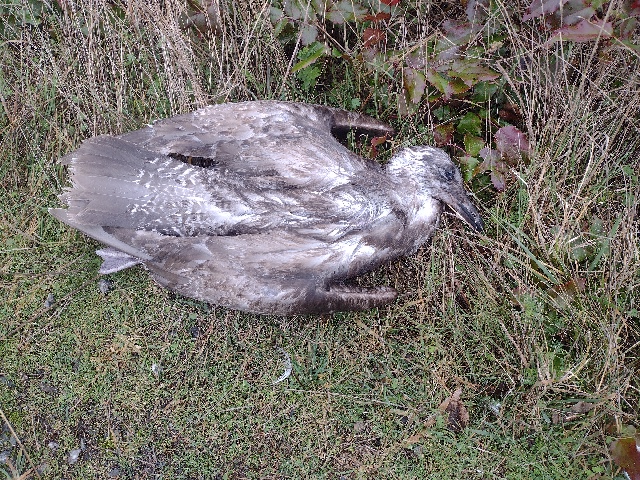Other News
Apr 11, 2024: Community Meeting: Sea Level Rise Adaptation for Outer Bay and Agate Beach Areas on Lopez Island
Mar 11, 2024: Queers in Unexpected Places: Searching for (and Finding) Gender and Sexual Non-Conformity in the Rural and Early PNW
Mar 7, 2024: DRAFT Richardson Marsh Preserve Stewardship and Management Plan Now Open for Public Comment
Dec 5, 2023: County Council Member Jane Fuller and Senator Liz Lovelett to Host Public Meeting on Lopez
Nov 3, 2023: County and Town Send Open Letter to State Officials Regarding Impacts of Poor Ferry Service
Sep 29, 2023: Conservation Land Bank Announces Special Meeting to Discuss Watmough Bay Preserve Addition
Sep 14, 2023: The mobile dental van is coming to Lopez! // ¡La camioneta dental móvil ya llega a López!
Aug 22, 2023: San Juan County Adopts 32-Hour Work Week in the Name of Fiscal Health, Recruitment, and Islander Wellness
May 25, 2023: Recap of Lopez Neighborhood Meeting Regarding the Relocation of Public Works Facilities
May 23, 2023: District 3 Councilmember Jane Fuller Opens Office on Lopez and Hosts Community Conversation
Apr 17, 2023: Give Lopez Starts April 17th - A two week fundraiser benefiting 15 Lopez Island Non-Profits
Sep 22, 2022: Interim Watmough Preserve Addition Stewardship and Management Plan Now Open for Public Comment
Help protect island wildlife!
Mar 28, 2024
By Kwiaht
Dead birds, small mammals and reptiles can tell us a lot about the spread of wildlife diseases and parasites such as ticks, and help us protect people, too.
As weather patterns change, we are seeing the spread of new pathogens and parasites in wildlife. Ticks are becoming more abundant, for example, and they are emerging and “questing” for hosts a month or two earlier than they did in the past. Ticks pass microparasites like Babesia between wildlife and people, so that monitoring ticks and tick-borne disease in wildlife, we can be better prepared for new threats to human health in the islands.
Other current concerns include highly pathogenic avian flu or H5N1, which has “jumped” to mammals in many other parts of the world including a 2023 outbreak near Port Townsend. Waterfowl such as geese, ducks and swans; and shoreline scavengers such as gulls, eagles, otters and minks are at greatest risk of exposure to H5N1, and this risk is highest during spring and fall bird migrations. We can test freshly dead birds for H5N1, working in cooperation with the Washington Department of Fish and Wildlife.
Bats are another special concern. White Nose Syndrome (WNS) has been found in some bat colonies in caves on the mainland, and we are also on alert to the possibility of rabies being introduced to bats here in the islands from colonies in nearby Whatcom or Snohomish counties.
Other species are also in need of monitoring. Snakes are susceptible to Ophidiomycosis, a fungal disease that has been spreading rapidly westward and now affects reptiles in 23 states, including California and Idaho. We are intensively monitoring snakes on Mount Young and the Turtleback, but we need islanders to help us find snake specimens elsewhere in the county??"including roadkill.
If you encounter dead wildlife, send a message to: info@kwiaht.org
Be sure to include a photo and location information. We’ll let you know when we will come to collect it, or whether and how you should try to collect it for us. Depending on the species and circumstances, we may have additional instructions for you.
And if you encounter an injured or ill animal that is still alive, be sure to phone Wolf Hollow Wildlife Rehabilitation Center at 360 378-5000. They can help it survive, and will share whatever they learn with Kwiaht wildlife biologists!
This monitoring program is conducted in accordance with WDFW Scientific Collection Permit 24-131.
Other current concerns include highly pathogenic avian flu or H5N1, which has “jumped” to mammals in many other parts of the world including a 2023 outbreak near Port Townsend. Waterfowl such as geese, ducks and swans; and shoreline scavengers such as gulls, eagles, otters and minks are at greatest risk of exposure to H5N1, and this risk is highest during spring and fall bird migrations. We can test freshly dead birds for H5N1, working in cooperation with the Washington Department of Fish and Wildlife.
Bats are another special concern. White Nose Syndrome (WNS) has been found in some bat colonies in caves on the mainland, and we are also on alert to the possibility of rabies being introduced to bats here in the islands from colonies in nearby Whatcom or Snohomish counties.
Other species are also in need of monitoring. Snakes are susceptible to Ophidiomycosis, a fungal disease that has been spreading rapidly westward and now affects reptiles in 23 states, including California and Idaho. We are intensively monitoring snakes on Mount Young and the Turtleback, but we need islanders to help us find snake specimens elsewhere in the county??"including roadkill.
If you encounter dead wildlife, send a message to: info@kwiaht.org
Be sure to include a photo and location information. We’ll let you know when we will come to collect it, or whether and how you should try to collect it for us. Depending on the species and circumstances, we may have additional instructions for you.
And if you encounter an injured or ill animal that is still alive, be sure to phone Wolf Hollow Wildlife Rehabilitation Center at 360 378-5000. They can help it survive, and will share whatever they learn with Kwiaht wildlife biologists!
This monitoring program is conducted in accordance with WDFW Scientific Collection Permit 24-131.

A freshly dead juvenile gull on the tide line was sampled and tested negative for avian flu.
